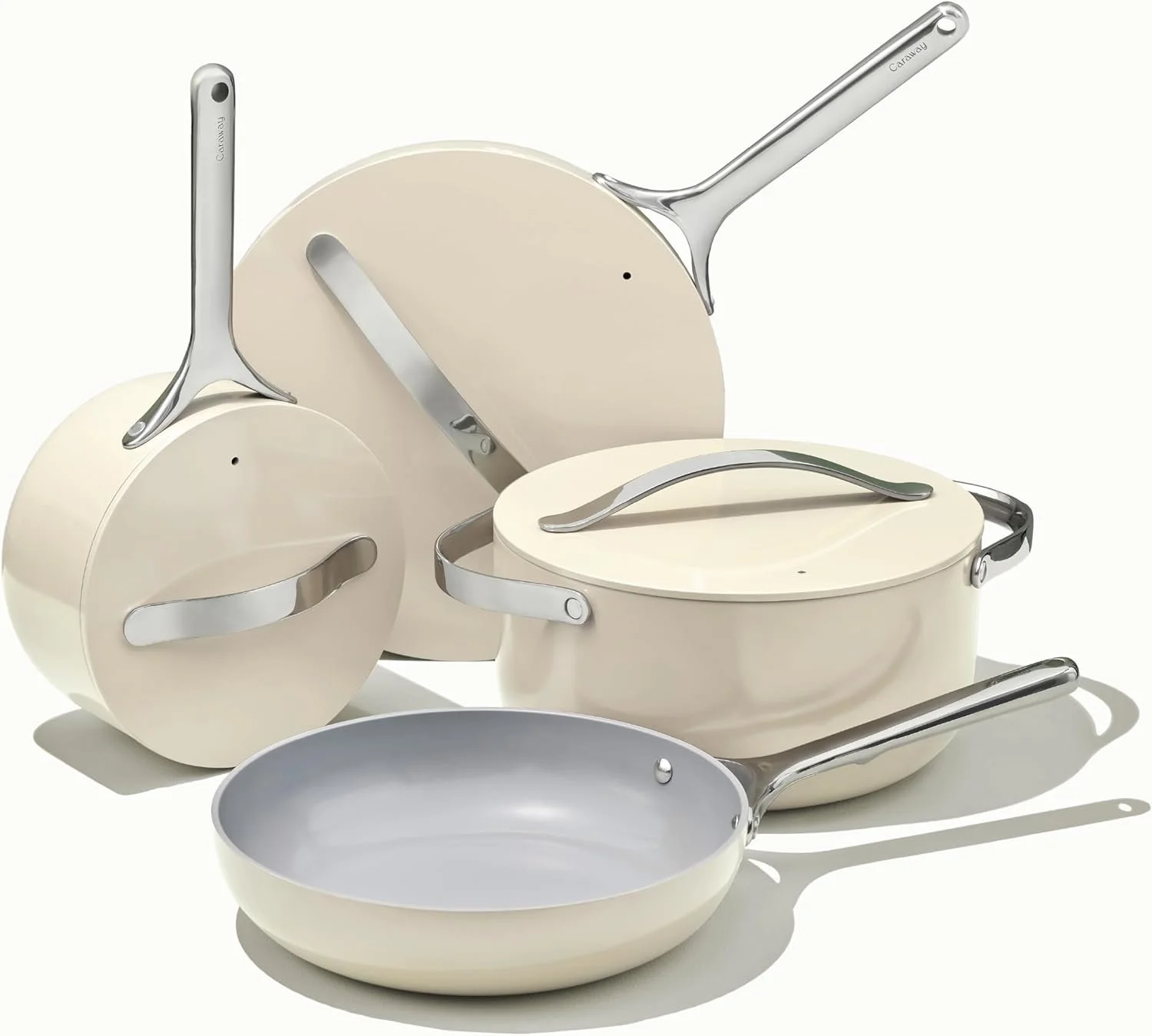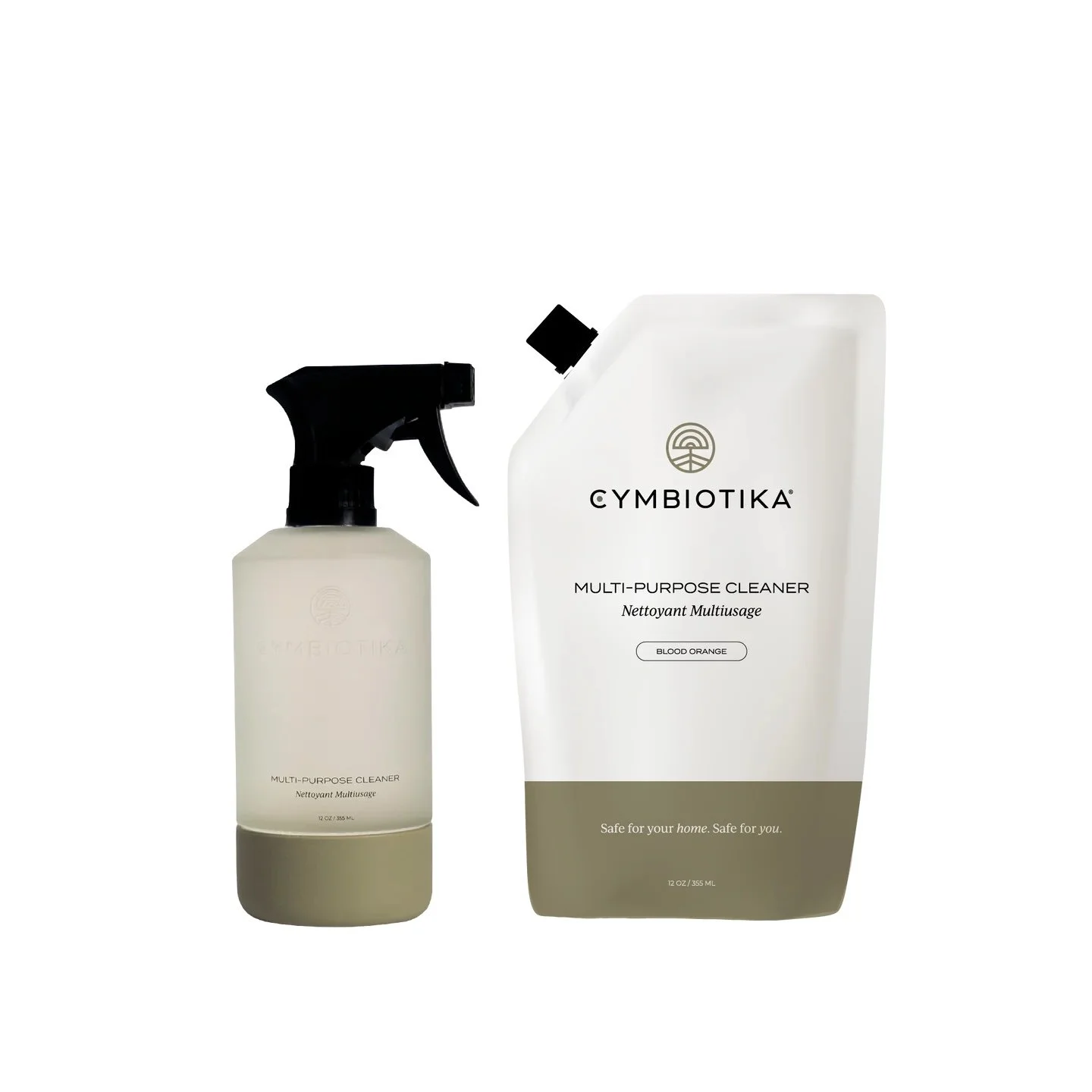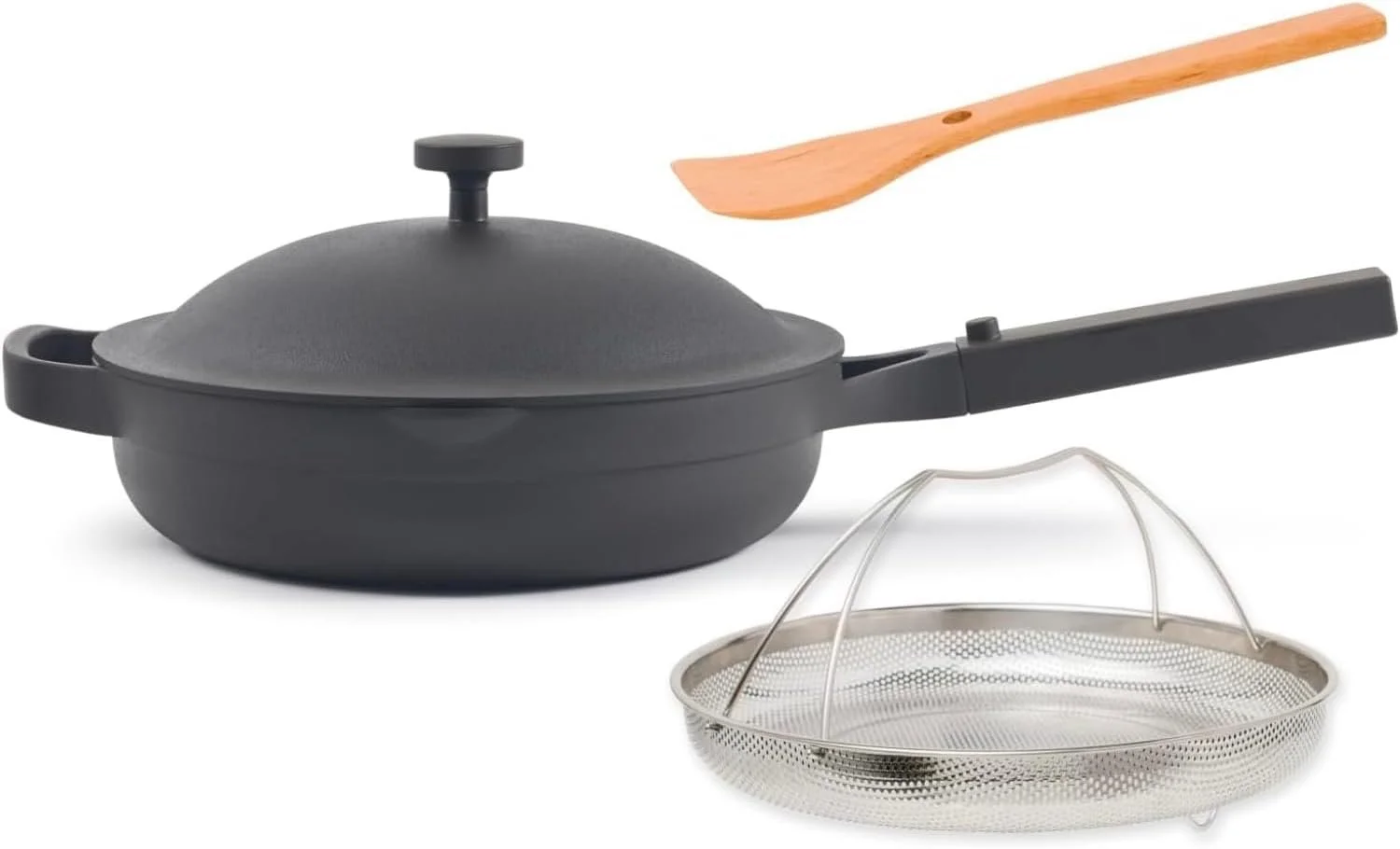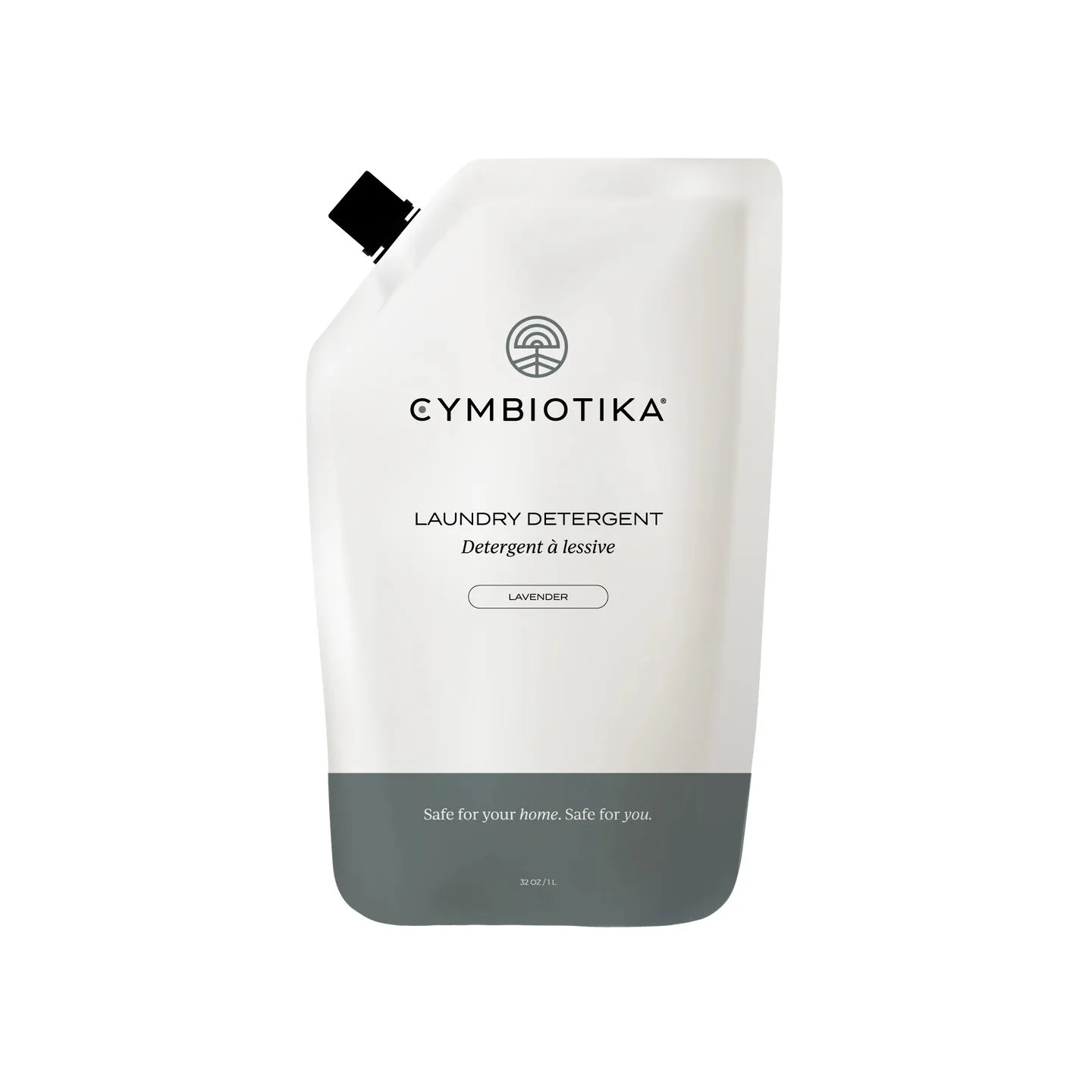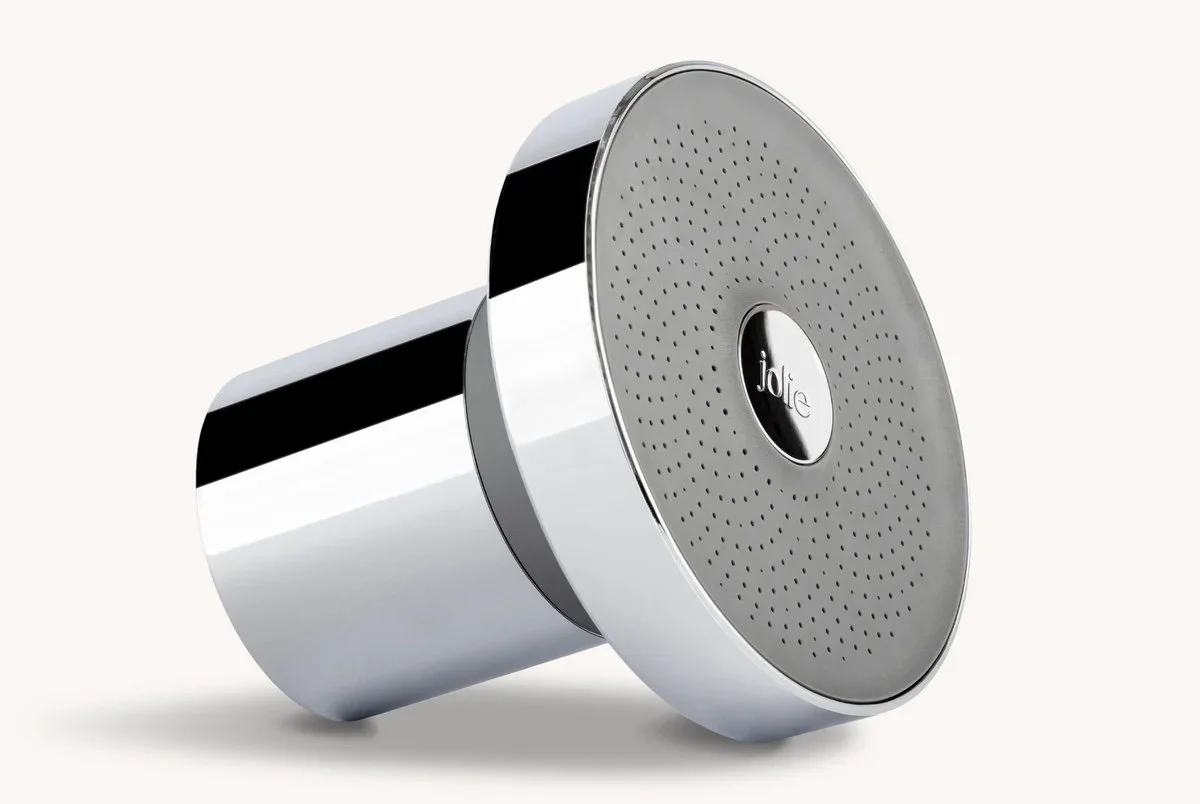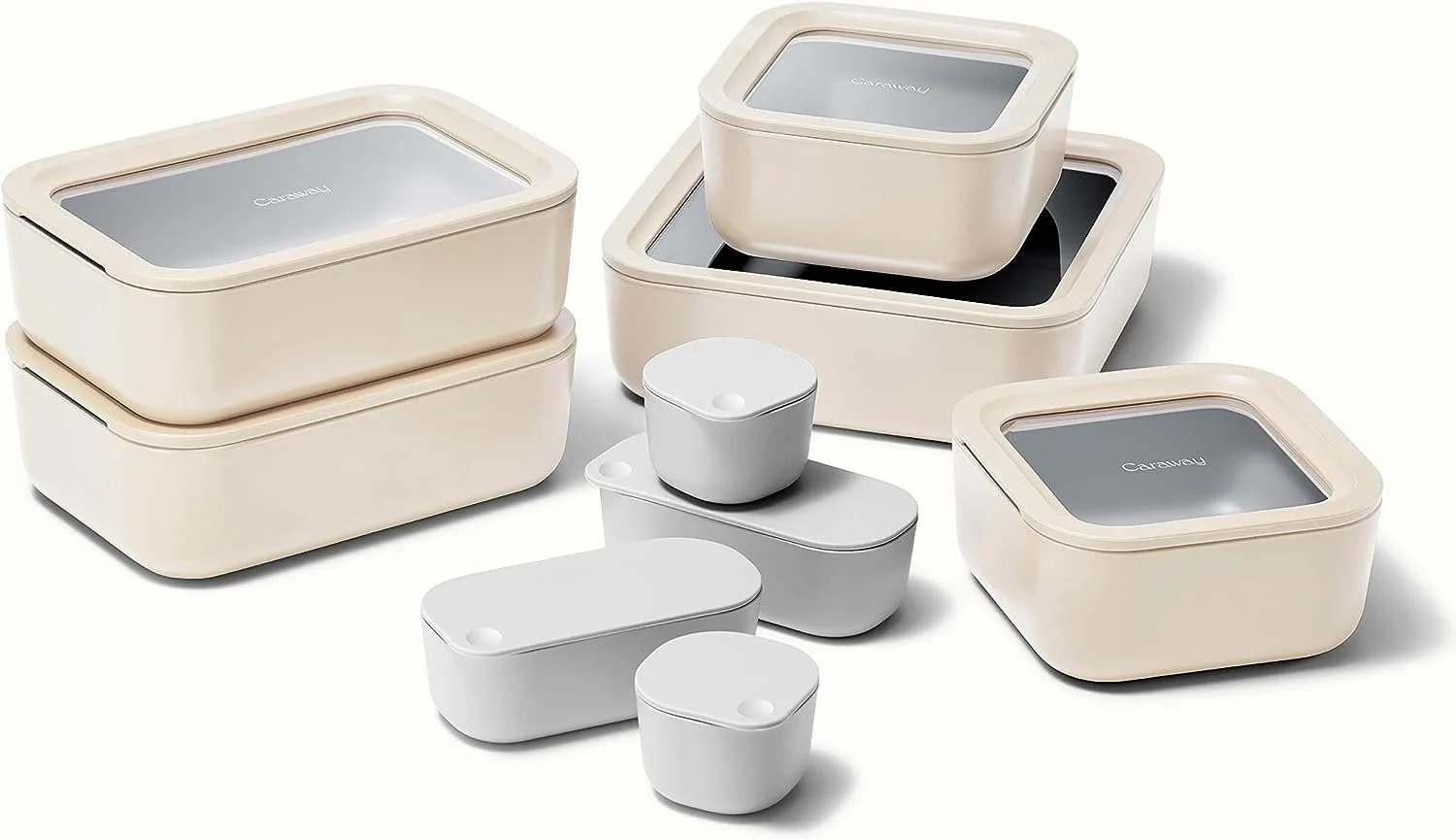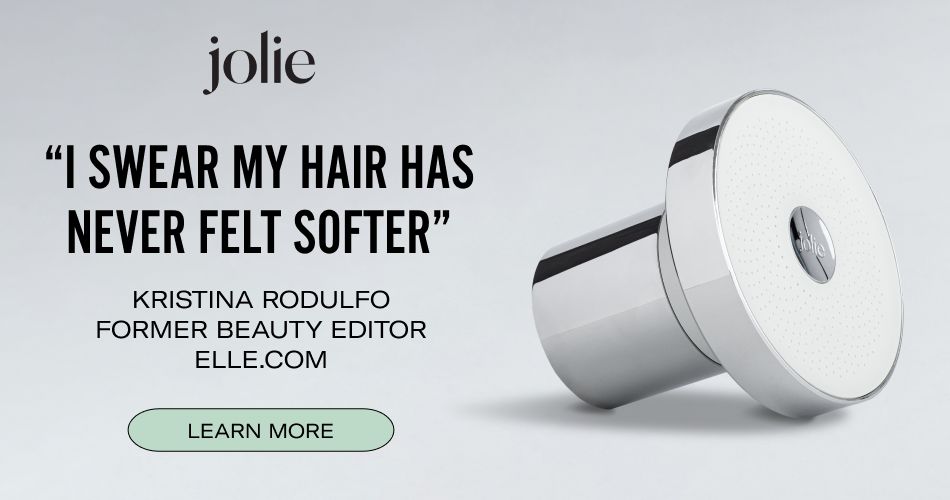Revamp Your Kitchen for Healthier Living: A Guide to Safer Kitchenware Choices
In the pursuit of a healthier lifestyle, the kitchen plays a pivotal role. It's not just about the food we consume but also the environment in which it's prepared. Unfortunately, many conventional kitchen products harbor hidden toxins that can seep into our food and impact our health over time. From plastic containers to Teflon-coated pans and harsh cleaning supplies, our kitchen choices may inadvertently expose us to harmful chemicals. However, by making conscious decisions to swap out these items for healthier alternatives, we can create a safer haven for our culinary endeavors. Let's delve into the realm of kitchenware and explore how to spruce up your kitchen for a healthier lifestyle.
Understanding the Harmful Chemicals Lurking in Your Kitchen: Before diving into replacements, it's crucial to understand the potential risks associated with common kitchen items:
plastics
Plastic containers and utensils are ubiquitous in modern kitchens, but they come with hidden dangers. Many plastics contain bisphenol A (BPA) and phthalates, which are known endocrine disruptors. These chemicals can mimic hormones in the body, leading to a range of adverse health effects. Research has linked BPA and phthalate exposure to:
Hormonal Disruption: BPA and phthalates can interfere with the endocrine system, disrupting the production, release, transport, metabolism, and elimination of hormones. This disruption can lead to hormonal imbalances, affecting reproductive health, thyroid function, and even metabolism.
Increased Cancer Risk: Studies have shown associations between BPA exposure and an increased risk of certain cancers, including breast cancer and prostate cancer. Phthalates have also been linked to an elevated risk of breast cancer and reproductive cancers in both men and women.
Developmental and Reproductive Problems: Prenatal exposure to BPA and phthalates has been associated with adverse outcomes in children, including altered development of the brain, reproductive organs, and immune system. These chemicals may also contribute to infertility, miscarriages, and birth defects.
Medical studies have provided compelling evidence of the harmful effects of BPA and phthalates on human health. For example, a study published in the Journal of Clinical Endocrinology & Metabolism found that urinary levels of BPA were associated with an increased risk of obesity and insulin resistance in children. Similarly, research published in Environmental Health Perspectives has linked prenatal exposure to phthalates with impaired neurodevelopment in infants.
Teflon-Coated Pans
Non-stick cookware, often coated with polytetrafluoroethylene (PTFE), commonly known as Teflon, poses potential health risks due to the release of perfluorooctanoic acid (PFOA) during cooking. PFOA exposure has been linked to:
Thyroid Disorders: Studies have shown that PFOA exposure may disrupt thyroid hormone levels, leading to hypothyroidism (underactive thyroid) or other thyroid disorders. This can result in symptoms such as fatigue, weight gain, and cognitive impairment.
Liver Damage: PFOA has been associated with liver toxicity and damage in animal studies. Chronic exposure to PFOA may increase the risk of liver cancer and other hepatic conditions in humans.
Developmental Delays: Prenatal exposure to PFOA has been linked to developmental delays in children, including delayed growth and neurobehavioral problems. Children born to mothers with higher levels of PFOA in their blood may exhibit deficits in attention, memory, and motor skills.
Numerous epidemiological studies and animal experiments have provided evidence of the adverse health effects of PFOA exposure. For instance, a study published in Environmental Health Perspectives found a significant association between PFOA exposure and decreased fetal growth in pregnant women. Additionally, research published in Environmental Science & Technology reported elevated PFOA levels in individuals living near manufacturing facilities, highlighting the environmental persistence of this chemical and its potential health impacts.
Toxic Cleaning Supplies
Conventional kitchen cleaning products often contain harsh chemicals such as ammonia, chlorine bleach, and synthetic fragrances, which can pose serious health risks:
Respiratory Irritation: Inhalation of fumes from chemical cleaners can irritate the respiratory tract, leading to symptoms such as coughing, wheezing, and shortness of breath. Individuals with asthma or other respiratory conditions may experience exacerbated symptoms when exposed to these chemicals.
Allergic Reactions: Many chemical cleaners contain allergens and irritants that can trigger allergic reactions in sensitive individuals. Skin contact with these products may cause rashes, itching, or dermatitis, while inhalation can induce allergic rhinitis or asthma attacks.
Environmental Pollution: Chemical cleaners contribute to indoor air pollution and can contaminate waterways when rinsed down the drain. Ingredients like phosphates and surfactants can disrupt aquatic ecosystems and harm aquatic organisms.
Numerous studies have documented the adverse health effects of exposure to household cleaning products. For example, a study published in the American Journal of Respiratory and Critical Care Medicine found that occupational exposure to cleaning agents was associated with an increased risk of asthma and decline in lung function among professional cleaners. Similarly, research published in Environmental Health Perspectives has linked prenatal exposure to common household cleaners with childhood respiratory problems and wheezing.
Making Healthier Choices
Now that we're aware of the potential dangers, let's explore how to make healthier choices when it comes to kitchenware:
Opt for Stainless Steel or Cast Iron Cookware: Stainless steel and cast iron are durable, non-toxic alternatives to Teflon-coated pans. They don't leach harmful chemicals into your food and offer excellent heat distribution for cooking.
Choose Glass or Stainless Steel Food Storage Containers: Replace plastic containers with glass or stainless steel options to eliminate exposure to BPA and phthalates. These materials are safer for storing food and are easier to clean.
Switch to Natural Cleaning Products: Look for eco-friendly cleaning products that use plant-based ingredients and avoid harsh chemicals. Vinegar, baking soda, and lemon juice are effective alternatives for cleaning surfaces without compromising your health.
Prioritize BPA-Free and Phthalate-Free Products: When shopping for kitchenware, check labels for BPA-free and phthalate-free certifications. This ensures that your purchases are free from these harmful chemicals.
Shop The Clean Kitchen Collection
The Impact on Health
The decision to revamp your kitchen for healthier living goes beyond mere aesthetics. By minimizing exposure to toxic chemicals, you can safeguard your health and well-being in numerous ways:
Reduced Risk of Hormonal Disruption: By opting for BPA-free and phthalate-free kitchenware, you're taking a proactive step to safeguard your hormonal balance. Hormones play a crucial role in various bodily functions, including metabolism, reproduction, and mood regulation. When these hormones are disrupted by exposure to chemicals like BPA and phthalates, it can lead to a cascade of health issues. From fertility problems and menstrual irregularities to increased risk of hormone-related cancers, the implications of hormonal disruption are far-reaching. By eliminating these endocrine-disrupting chemicals from your kitchen, you're helping to maintain the delicate balance of your hormonal system and reducing the risk of associated health problems. While also helping our planet by not leaving as big of a foot print That comes with using plastics.
Improved Respiratory Health: Switching to natural cleaning products isn't just about keeping your kitchen countertops sparkling clean—it's also about protecting your respiratory health. Many conventional cleaning products contain volatile organic compounds (VOCs) and harsh chemicals that can irritate the respiratory tract and worsen conditions like asthma and allergies. By choosing eco-friendly cleaning alternatives, such as vinegar, baking soda, and essential oils, you're creating a healthier indoor environment for yourself and your family. These natural cleaners effectively remove dirt and grime without releasing harmful fumes, allowing you to breathe easier and enjoy cleaner air in your home.
Enhanced Overall Well-being: Your kitchen is the heart of your home, and the choices you make in this space can have a profound impact on your overall well-being. By investing in safer kitchenware options, such as stainless steel cookware and glass food storage containers, you're not only reducing your exposure to harmful chemicals but also promoting a healthier lifestyle. Stainless steel and glass are durable, non-toxic materials that won't leach harmful substances into your food, ensuring that every meal you prepare is free from contamination. By prioritizing your health in the kitchen, you're setting yourself up for success in other areas of your life, from improved digestion and energy levels to better immune function and mental clarity.
Making the switch to healthier kitchenware and cleaning products isn't just a trend—it's a commitment to your health and well-being. By understanding the potential risks associated with conventional kitchen items and taking proactive steps to minimize exposure to harmful chemicals, you're empowering yourself to live a healthier, happier life. From reducing the risk of hormone disruption and respiratory problems to enhancing overall well-being, the benefits of a toxin-free kitchen extend far beyond the confines of your countertops. So go ahead, make the switch, and transform your kitchen into a sanctuary of health and vitality. Your body will thank you for it!


